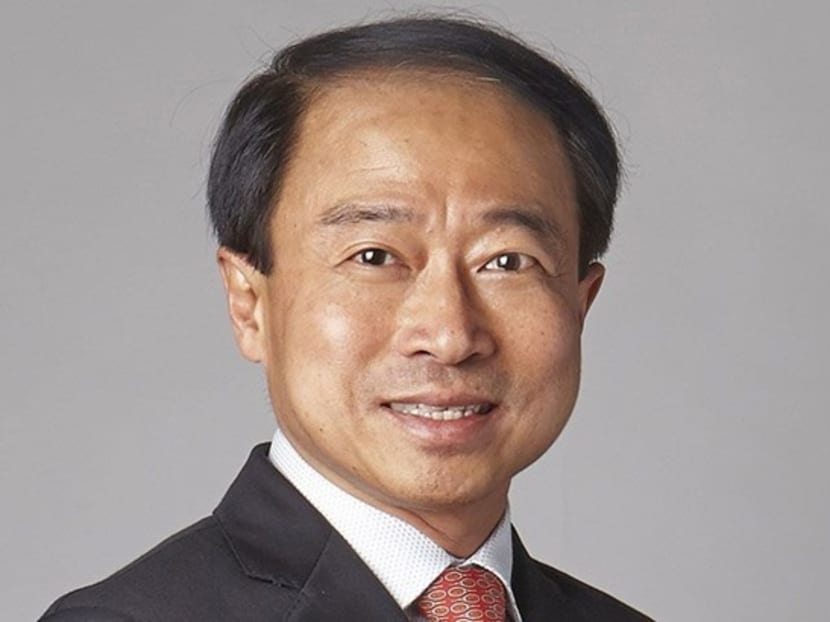'Too soon' to assume that property market has recovered: Redas
SINGAPORE — Despite signs of the property market “trending up”, it is still too early to indicate that the market has turned positive and recovery has kicked in, president of the Real Estate Developers' Association of Singapore (Redas) Mr Augustine Tan said on Friday (July 7).
SINGAPORE — Despite signs of the property market “trending up”, it is still too early to indicate that the market has turned positive and recovery has kicked in, president of the Real Estate Developers' Association of Singapore (Redas) Mr Augustine Tan said on Friday (July 7).
“Our concern is if the prevailing ‘bullish’ appetite for residential land persists amid pending rising interest rate and weak employment prospects, demand will weaken over time and hasten the compounding effects of increasing supply and high vacancy,” Mr Tan said at the Property Market seminar organised by the Association.
Mr Tan pointed out that Singapore’s macroeconomic fundamentals are “still not strong”. Furthermore, global economic growth remains “anaemic” amid geopolitical risks and rising US interest rates, Mr Tan said.
He also pointed to the “supply overhang” of about 37,000 uncompleted units as at the first quarter, of which nearly 16,000 units or 43 per cent are still unsold. At the current new private residential transaction volume of approximately 8,000 units in 2016, it will take around two years to absorb the existing stock, barring unforeseen circumstances, he added.
The Government land sales programme has released a potential supply of 8,125 private housing units for the second half of the year while another 5,300 units could come into the market if the 25 potential sites for collective or en-bloc sales are successfully transacted, said Mr Tan.
He also noted that the commercial, retail and industrial sectors continue to face lacklustre demand. Office prices and rentals, under pressure of large supply, declined 4 per cent and 3.4 per cent respectively.
Vacancy rate rose to a high of 11.6 per cent island-wide. The retail sector is also facing structural challenges in 2017 with island-wide vacancy rate for retail space climbing to 7.7 per cent from 7.5 per cent in the last quarter, according to Mr Tan.
“Against this backdrop, business and consumer confidence could be weakened, further dampening investment and consumption,” said Mr Tan.
He added that while the Government has made it clear that the property cooling measures are “here to stay”, Redas is concerned about the “issue of timing”.
“The worry is that when measures are tweaked because the market worsens, whether it is timely enough or the right time to do it, it may be too little too late.”
“We just want the Government to know that there are certain risk factors that could affect the property market in a couple of years if certain things are not done.”
According to Maybank Kim Eng senior economist Chua Hak Bin however, the Singapore property market is stabilising. At his presentation during the seminar, Dr Chua said prices are recovering on the back of improved affordability over the last few years as incomes climb and household balance sheets look healthy with high cash balances and stable debt ratio.
“Singapore is witnessing a broadening economic recovery with services including financial, business, wholesale and retail sectors picking up and the job market recovering,” Dr Chua said.
Besides Singapore’s overly tight foreign and immigration policy, global risk factors including China’s tightening on shadow banks, protectionism led by United States President Donald Trump’s policies, steeper than expected US Fed tightening and the sharp commodity price plunge continue to be cause for concern, he added.
Mr Stuart Crow, head of capital markets - Asia Pacific at JLL said the Singapore office market is on the cusp of a recovery while the residential segment looks attractive in a global context.
“Asia Pacific outpaces other regions based on GDP outlook and there is a voracious appetite for assets both from domestic and cross border capital. Rents are improving across most markets,” he said. “While Australia and Japan continue to dominate investment destinations within Asia Pacific, Singapore looks attractive and affordable on a global scale.”







